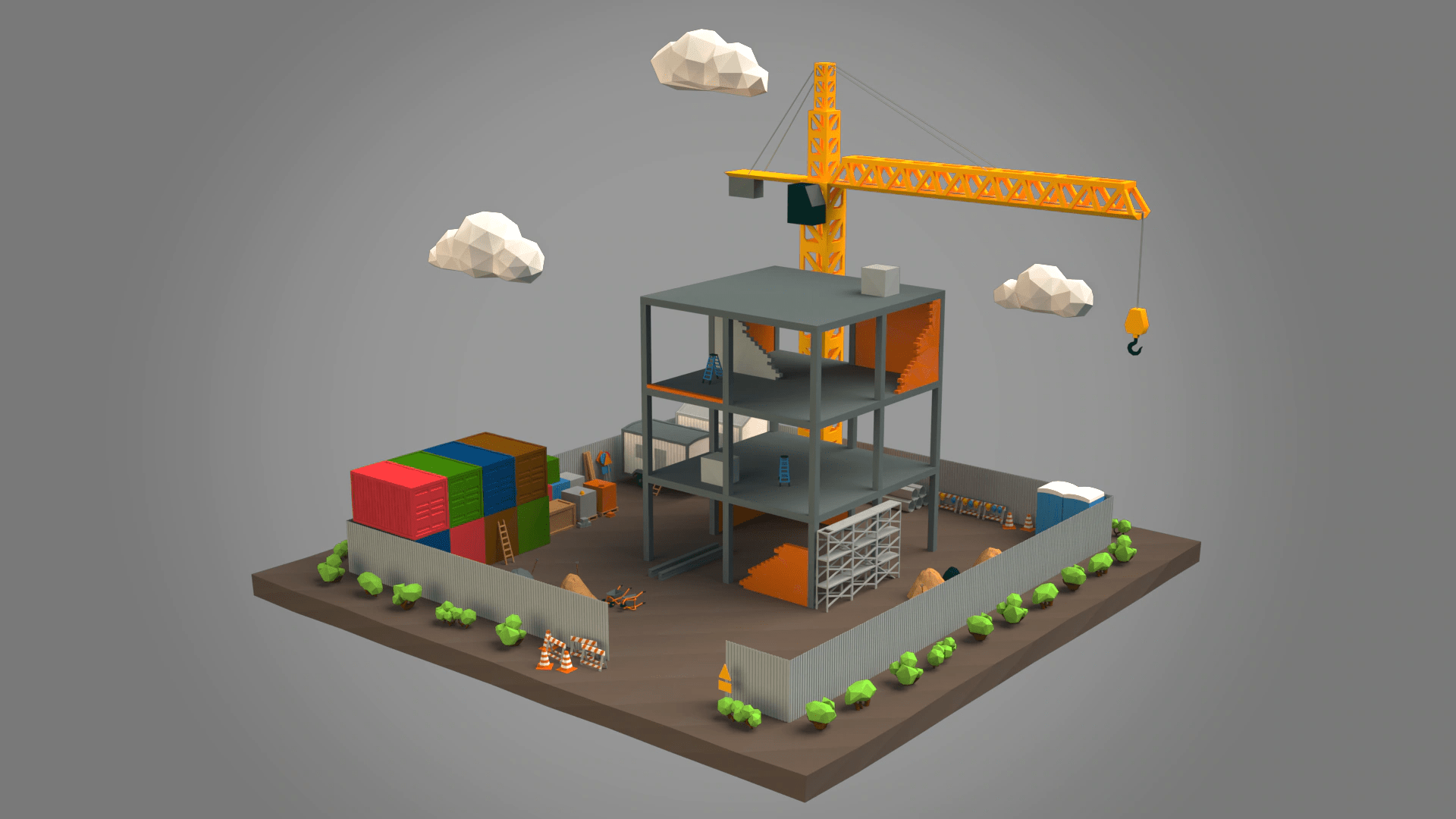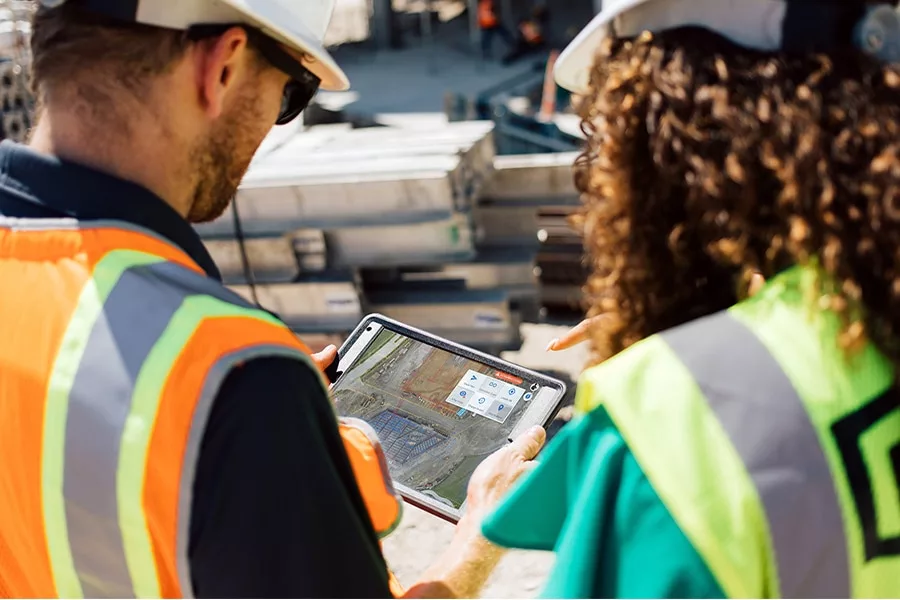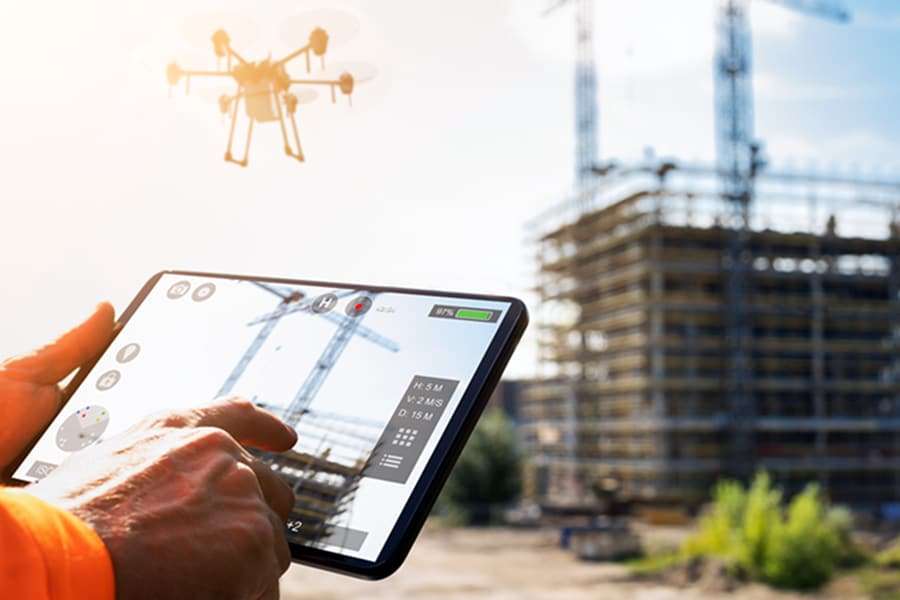
What Are the Next-Generation Construction Skills?
From 3D intelligence to AI and supply chains and jobsite logistics, tomorrow’s construction worker needs to be equipped with these skills—and more—to thrive in the industry
It was around 1996 when I first started in the construction industry. The Atlanta Olympics, Bill Clinton’s presidential re-election and the first Major League Soccer match in the United States were among the year’s other notable events. Looking back, it feels like a lifetime ago. So much has happened since, not just politically and culturally but in terms of the evolution of technology, both in wider society but also that is used to plan, execute and manage construction projects.
In high school, I took a typing class to fill in half a semester when the other half was taken up with a required health class. Maybe I should have taken shop or auto mechanics, but at the time I probably didn’t want to get my hands dirty. It seemed somewhat irrelevant to me in the moment to take typing. I can remember thinking, “Why will I ever need to type? There are people who do that for you.” I thought the class would be easy to ace. I wasn’t thinking about the future.
I’m sure glad I took that typing class, because within a decade afterwards I’d be spending countless hours typing—working in databases, writing up documents, creating slides and spreadsheets to communicate ideas through my fingers as I created estimates, wrote contracts, projected costs and resolved issues on construction projects.
This makes me ponder what the relevant construction skills are for the future. What classes are today’s students overlooking—as I did with typing—that will be needed in the industry in the decades ahead? What does the jobsite of the future look like? And what are the essential capabilities that will bring you to the top of the heap in that world?
3D intelligence
The first next-generation skill that comes to mind for me is virtual 3D intelligence—the ability to imagine and understand concepts through digital models. A generation ago, to prepare for a life in construction we learned how to read blueprints: how to interpret the points, lines and arcs on a set of plans and use that understanding to execute the construction project. Tomorrow, I predict fluency in operating within a 3D virtual world will be critical not only to those creating and coordinating the models, but also for those in the office and field executing the work. All those lifelike 3D videogames kids play may be relevant to the future after all.

Computer programming/software integration

One area that may not seem obvious is to gain skills in computer programming and integrating between software programs using application programming interfaces, or APIs, the mechanisms that enable two software components to communicate with each other. This probably feels opposite of the skills required to manage construction projects, but there are so many solutions available for specific tasks in construction that early-career professionals can accelerate their own careers by “hacking” together integrated solutions to solve problems and access data.
Just as my generation benefitted from fluency with spreadsheets and database-oriented software, tomorrow’s construction professionals will need to be fluent in concepts of artificial intelligence and machine learning. Although these innovative technologies have been largely portrayed as robots taking over human jobs, I don’t see that happening. Instead, it’s far more likely that something like artificial intelligence (AI) is used to complement human ingenuity, not replace it.
Think of AI as the type of technology that automates and streamlines repetitive, mundane tasks so construction workers can spend more time on complex, high-impact work.
Today, most decision support systems in construction are based on static dashboards and set formulas for understanding changes in-flight and expected cost and time impacts. AI and similar technology, however, has reached mainstream in many contexts. For instance, we use AI without realizing it for unlocking our phones with facial recognition and asking our voice assistants to add to the weekly grocery list. Those who understand how to harness AI concepts for business process automation and decision support will be able to spend more time building and less time gathering and interpreting data.
Supply chains
Another skill essential for the future construction professional, I predict, will be an understanding of supply chains. The movement of construction materials is incredibly complex. Every project arguably has a unique supply chain to source labor, equipment and building materials.
But as the COVID-19 pandemic showed, supply chains can become vulnerable when they break down, adding to the risks of a construction project. As a result, construction leaders have aimed to make industry supply chains more akin to manufacturing, where materials and even parts of structures are assembled in a factory before being transported to a jobsite for final placement.
Understanding this evolving supply chain, and its manufacturing-like components, will be crucial for the next generation of construction workers.

Jobsite logistics
The last skill that I believe will be essential for the construction professional of tomorrow is logistics. Just as industry supply chains have recently become more complex, so too have the logistics that make a jobsite productive and a project ultimately successful for its owners and investors.
Managing on-site logistics is a skill that is already—and will continue to be—paramount to the future success of the industry. Not properly managing site logistics can lead to a tremendous number of problems, including construction waste and other risks that can deplete the timeline and, ultimately, bottom line of a project.
Moreover, nascent technologies, like virtual and augmented reality and other metaverse-like environments, have already begun to show promising application in pre-construction jobsite logistics, adding yet another skill for future construction leaders to learn to be successful.
Future forward
None of these skills, to be sure, substitute for a thorough and fundamental understanding of how things get built and the physical properties of materials. In addition to learning these likely cutting-edge skills, I would encourage all future builders to get hands-on building experience. You can start with Habitat for Humanity or another volunteer-driven organization. What other skills do you think are critical for the next generation of building professionals? One thing is for sure: the construction industry is going to be far more digital and integrated with technology than it is today—and the speed of innovation is only going to increase over time.
Share this post on:
Subscribe now
to receive newsletter with latest news weekly from Revu Experts Vietnam.
Related posts

Musselman & Hall Boosts Efficiency with Bluebeam
Musselman & Hall has embraced Bluebeam software to streamline their project takeoff and management processes.

The Top 3 Most Effective Construction Project Management Software
Let’s explore the top 3 most effective project management software currently shaping the complex landscape of the construction industry.

How Can GPS Help Construction?
From keeping onsite equipment secure and productive to helping map out land and terrain for projects, Global Positioning System (GPS) technology offers the construction industry a dimension of information that was simply unthinkable a few decades ago.

How Drone Technology Is Construction’s Eye in the Sky
The advent of drones gives the construction industry the opportunity to get a unique view of a building project as it rises from the ground.

